UK leads core group of sponsors; China withdraws, while several Asian and Gulf states voice support for a consensus adoption.
Geneva, 6 Oct 2025 – The United Nations Human Rights Council (UNHRC) convened on Monday to consider draft resolution A/HRC/60/L.1/Rev.1, titled “Promoting Reconciliation, Accountability and Human Rights in Sri Lanka.” The text, presented by the United Kingdom on behalf of a core group of five countries – Canada, Malawi, Montenegro, North Macedonia and the UK – seeks to build on recent pledges by Sri Lanka’s government to address lingering human‑rights violations stemming from decades of ethnic conflict.
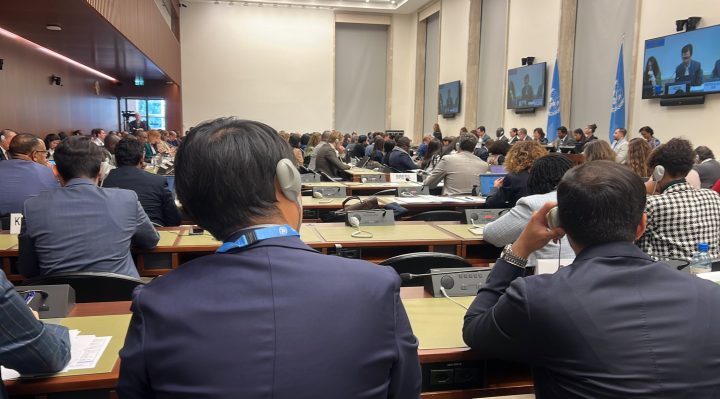
A tribute that set a sober tone
The session opened with a solemn tribute by the UK delegate to Dr. Kasipillai Manoharan, who died during the meeting. Dr. Kasipillai Manoharan, a Sri Lankan human‑rights activist, had become a prominent figure after the 2006 killing of his son Ragiar – one of five university students murdered in the town of Kankankamali. His tireless campaigning at the UN and his presence at the Council had inspired many. “His passing reminds us that countless families still await truth and justice,” the UK’s representative said, underscoring the urgency of the resolution.
Core elements of the draft
The resolution acknowledges “the commendable commitments” made by Sri Lanka’s newly elected government but presses for concrete implementation. Key provisions include:
- Mass‑grave excavations – urging transparent, forensic‑based investigations to enable identification of victims and provide closure for families.
- Establishment of an independent prosecutor’s office – to break the cycle of impunity for wartime and post‑war violations.
- Legislative reforms – calling for the repeal or amendment of the Prevention of Terrorism Act and the Online Safety Act to bring them in line with international standards.
- Protection of human‑rights defenders – condemning the surveillance and intimidation of families of the disappeared and urging the cessation of such practices.
- Enhanced UN engagement – reaffirming the role of the Office of the High Commissioner for Human Rights (OHCHR) in providing technical assistance and monitoring.
The resolution also welcomes Sri Lanka’s invitation to the OHCHR in June and other domestic reconciliation initiatives, emphasizing the need for “transparent, locally‑owned mechanisms” that reinforce rule of law and equality.
Divergent reactions among Council members
China distances itself
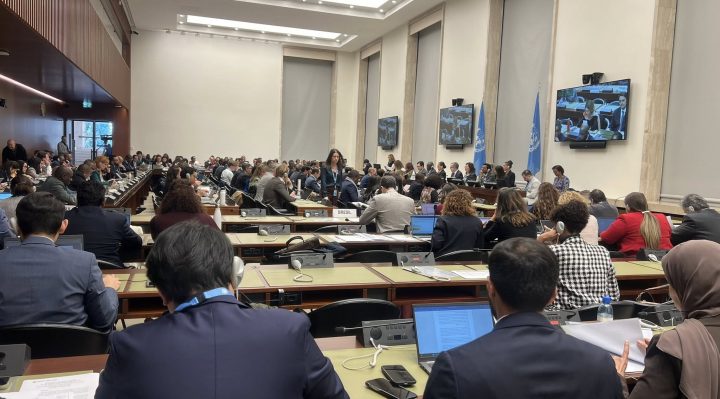
After the UK’s presentation, the delegation of the People’s Republic of China delivered a lengthy statement praising Sri Lanka’s economic recovery and anti‑terrorism efforts. Yet China reiterated its longstanding opposition to “country‑specific resolutions without the consent of the concerned state,” and announced it would disassociate itself from the consensus on A/HRC/60/L.1/Rev.1. “We hope all parties respect Sri Lanka’s independently chosen human‑rights development path,” the Chinese envoy said, warning that external mandates have “not yielded real effect for the people of Sri Lanka.”
South‑Korea, Japan, and Gulf states back the text
The Republic of Korea’s representative lauded the draft as a “balanced text” and expressed confidence in Sri Lanka’s “genuine commitment” to an inclusive democratic society. “We look forward to sustained conciliation, accountability and humanitarian outcomes,” the Korean envoy said, urging adoption by consensus.
Japan echoed similar sentiments, highlighting the importance of “transparent domestic mechanisms” and the continuation of the High Commissioner’s June visit. “Sri Lanka’s own efforts are most important to improve the situation on the ground,” the Japanese delegate said, adding that Japan would support the resolution’s adoption without a vote.
A joint statement from Gulf Cooperation Council (GCC) members – Saudi Arabia, the United Arab Emirates, Qatar, Bahrain, Oman and Kuwait – praised Sri Lanka’s “social and legislative reforms” and the “technical assistance” provided by the UN. The GCC emphasized respect for Sri Lanka’s sovereignty while urging “institutional reforms that combat impunity.”
Ethiopia cautions against external pressure
Ethiopia’s delegation, while supporting the broader goals of reconciliation and accountability, warned against “external evidence‑gathering mechanisms established without the consent of the state.” The Ethiopian envoy called for “constructive dialogue, mutual respect and full conformity with the principles of national sovereignty,” arguing that over‑reaching UN mechanisms could “undermine national efforts and politicize the Council’s work.”
Cyprus speaks for the EU
The delegate from Cyprus, speaking on behalf of the European Union, reiterated EU support for Sri Lanka’s human‑rights agenda, noting that “the EU stands ready to assist with capacity‑building and technical expertise” should the resolution be adopted.
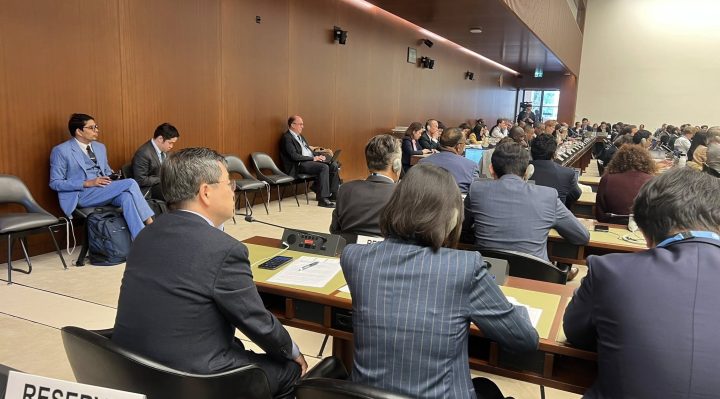
UN Human Rights Council Divided Over Sri Lanka Accountability Mechanism
Bangladesh, the Maldives and the Dominican Republic defend a new resolution that would extend an external human‑rights monitoring project on Sri Lanka, while Colombo and Cuba vote against what they describe as “unwarranted interference.” The debate, held on 9 September 2025, highlights the tension between international oversight and nationally‑led reconciliation efforts in the island nation.
The United Nations Human Rights Council (UNHRC) convened a heated session on Thursday to consider “Resolution L1 Reb 1” – a draft text that would prolong the mandate of the Office of the High Commissioner for Human Rights (OHCHR)‑led “Sri Lanka Accountability Project” for another two years. The proposal, put forward by the Council’s core group, carries a budget of roughly US$3.8 million for the 2025‑2027 programme period, on top of the US$15 million already spent on the mechanism since its inception in 2021.
A chorus of support
Bangladesh opened the debate, thanking the President of the Council for “the constructive engagement of the Government of Sri Lanka” and praising the “spirit of dialogue and cooperation” displayed during the High Commissioner’s visit to Colombo in June 2025.
“Bangladesh appreciates the measures taken by Sri Lanka to overcome its economic challenges and expresses solidarity with the government and people as they move toward stabilization, recovery and inclusive development,” said Bangladesh’s delegate.
The Maldives echoed these sentiments, urging the international community to give Sri Lanka “more time to implement its domestic plans in a systematic manner” and to “strengthen constructive dialogue and engagement” with Colombo’s reforms.
“We do not want to see any negative impact on the ongoing progress in Sri Lanka’s domestic situation,” the Maldivian representative added.
The Dominican Republic, speaking on behalf of a broader coalition, lauded the United Kingdom’s sponsorship of the draft and highlighted “reconciliation, accountability and human‑rights” as core pillars of the resolution.
“These steps show a willingness to move towards genuine reconciliation, strengthening rule of law and respect for fundamental freedoms,” the Dominican delegate said.
Colombo’s rejection
Sri Lanka’s own delegation, however, took a starkly different stance. While acknowledging “open and constructive engagement” with the Council, the Sri Lankan foreign minister warned that the resolution’s reference to “Resolution 51/1 of 2022” – which established the external evidence‑gathering mechanism – represented “an unprecedented and ad‑hoc expansion of the Council’s mandate.”
“We do not accept the external mechanism labeled as the Sri Lanka Accountability Project at a time when the government is strengthening domestic institutions such as the Office on Missing Persons, the Office for Reparations and the Office for National Unity and Reconciliation,” the minister argued.
He emphasized that Sri Lanka is already operationalizing a Truth and Reconciliation Commission, an independent public prosecutor’s office, and other nationally owned mechanisms. According to Colombo, the external project has yielded “no tangible results” after four years, consuming “almost US$15 million” without demonstrable benefit to victims.
Cuba backs Colombo
Cuba’s representative backed Sri Lanka’s position, condemning what it called “selective mandates imposed against the will of states concerned.”
“Only states concerned are in a position to identify their own needs and request technical assistance and cooperation that they deem appropriate,” the Cuban delegate said, adding that the resolution’s extension “will not contribute to the process of unity and national internal reconciliation underway in Sri Lanka.”
Cuba announced it would vote against the draft, aligning with Sri Lanka’s call to respect national sovereignty and to “reject coercive international action.”
The numbers and the vote
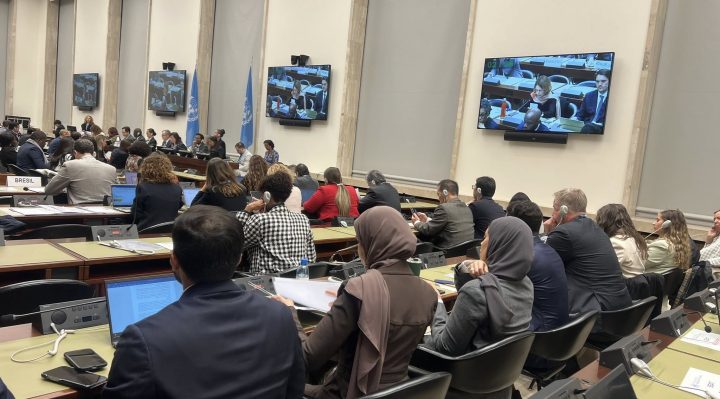
The Secretary‑General’s report presented before the vote noted that the Program Budget Items (PBIs) for the draft total US$3,800,400, already earmarked in the Council’s multi‑annual programme. No other delegations requested the floor after Cuba’s statement.
What’s at stake?
The debate underscores a broader contest over how human‑rights accountability should be pursued in post‑conflict settings. Proponents of the external mechanism argue that independent monitoring can safeguard victims’ rights and pressure governments to act swiftly. Critics, including Colombo, contend that external oversight can undermine locally‑driven reconciliation, exacerbate political polarization, and divert scarce resources.
Sri Lanka is still grappling with the aftershocks of its 2022 economic collapse, which triggered massive debt distress, shortages of essential goods and a wave of social unrest. The current government, elected in 2024, has pledged a “nationally owned” roadmap for truth‑seeking, reparations and institutional reform. Whether the UNHRC will revisit the issue later this year remains uncertain.
Looking ahead
UN officials indicated that the Council will reconvene in November to consider alternative formulations that might bridge the divide between international oversight and national ownership. In the meantime, Bangladesh, the Maldives and the Dominican Republic have called on the broader international community to “accompany Sri Lanka on this journey with empathy and understanding,” while Colombo has urged “respect for the country’s ownership of its reconciliation and human‑rights processes.”
The outcome of Monday’s session illustrates the delicate balance the UNHRC must strike: supporting human‑rights protections without compromising the sovereignty and agency of the very states it seeks to help. The next few months will reveal whether a consensus can be reached, or whether the impasse will deepen the divide between multilateral mechanisms and national reform agendas in Sri Lanka.
Background
Sri Lanka’s 30‑year civil war (1983‑2009) left deep scars, including alleged war crimes, enforced disappearances, and systematic discrimination against minority communities. Since President Ranil Wickremesinghe’s 2022 election, the government has pledged to investigate mass graves, repeal draconian security laws, and strengthen judicial independence. However, families of victims and international NGOs have repeatedly warned that progress remains uneven and that state‑sponsored intimidation persists.
The current draft resolution builds on earlier UNHRC decisions that called for “full accountability for violations” and for “a comprehensive, victim‑centred approach to truth‑seeking.” Its passage would represent the latest step in a multi‑year effort to translate diplomatic commitments into tangible reforms on the ground.
Norway’s peace efforts in Sri Lanka from 1997 to 2009. Since the end of the Cold War, Norway has shown remarkable foreign policy activism in the pursuit of peace and Sri Lanka is a prominent example of this. Norwegian efforts to bring about a negotiated settlement between successive Sri Lankan governments and the Liberation Tigers of Tamil Eelam (LTTE) spanned a twelve-year period. Apart from its role as peace facilitator, Norway was involved as a ceasefire monitor and an aid donor during this period.
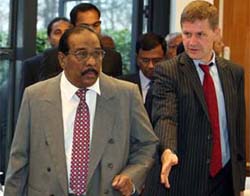
The Sri Lankan peace process is largely a story of failure in terms of bringing an end to the civil war. Norway, however, cannot be held solely or primarily responsible for this ultimate failure and its involvement contributed to several intermediate achievements, including the Ceasefire Agreement, the Oslo meeting in which both sides expressed a commitment to explore a federal solution, and the signing of a joint mechanism for post-tsunami aid. The ceasefire in particular had positive impacts on the ground situation, but in the end these accomplishments proved to be ephemeral.
The peace process reproduced, rather than transformed underlying structural obstacles to conflict resolution. It failed to induce fundamental changes in the disposition of the state and anti-state formations in Sri Lanka, and to some extent it caused a further entrenchment of positions.
